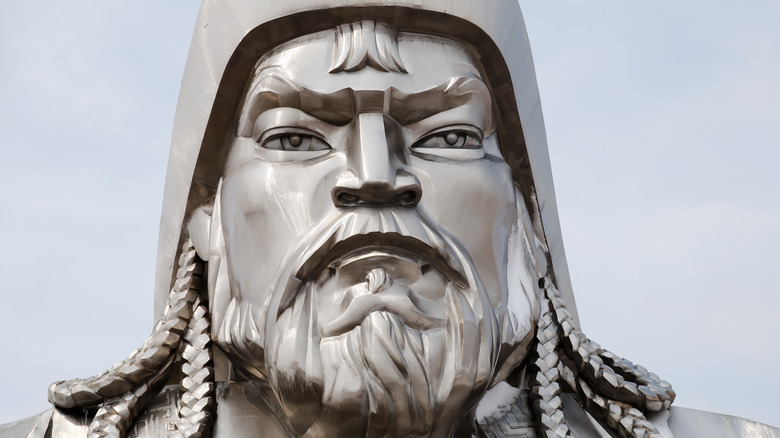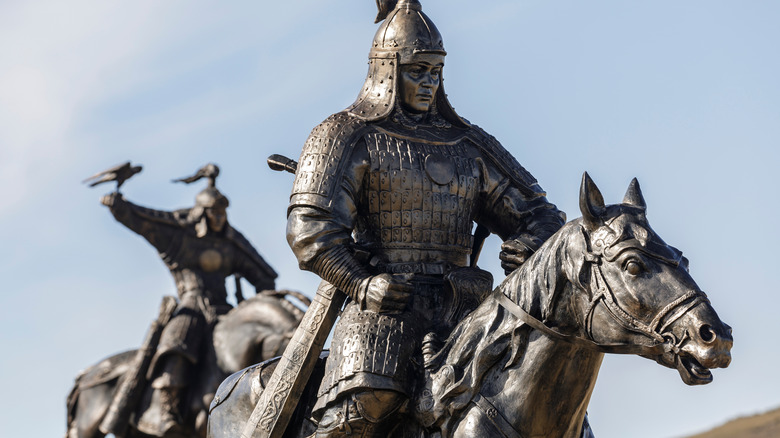Genghis Khan's Shocking Number Of Descendants
Genghis Khan's reputation as a vicious ruler precedes him, with good reason. The atrocities his forces committed at Konye-Urgench in the 13th century, per Ancient Origins, are almost unparalleled. The population was massacred, and the city's infrastructure was so damaged that the survivors had to seek a new home elsewhere. Today, he is largely known for one other thing, besides the all-conquering might of his forces: the all-conquering might of his DNA. According to The Vintage News, Khan was a "super father" who may have up to 16 million male descendants exhibiting the Y chromosome. However, Khan may have many millions more descendants if and when scientists are able to trace the double X chromosomes in his female progeny.
In a 2003 study called "The Genetic Legacy of the Mongols," via the American Society of Human Genetics, Chris Tyler-Smith (et al) state that variations in human DNA are "usually considered to result from a balance between neutral processes and natural selection." However, the research found "a Y-chromosomal lineage" with trend-bucking attributes "in 16 populations throughout a large region of Asia, stretching from the Pacific to the Caspian Sea." Call it the Genghis effect.
This lineage was reportedly "present at high frequency: [approximately] 8% of the men in this region carry it, and it thus makes up [approximately] 0.5% of the world total." The roots of this DNA pattern can be traced back to around 1000 years ago in Mongolia and shows that these people are male descendants of the Mongol ruler — all 16 million or so of them.
Khan's DNA is prolific in certain areas
The 2007 study, "Chromosomes Of Genghis Khan" states that the spread of these particular Y-Chromosomes "coincided surprisingly with the boundaries occupied by the Mongol Empire at that time," so it would naturally follow that they would be attributed to Genghis Khan (via Science Daily). However, in the study, which looked at 18 men from across different ethnic groups in Northern Eurasia, the results were interesting. The so-called "Genghisides" existed in vastly different quantities: "In the Russian population, the highest number of the Khan chromosome carriers are among the Altai Kazakhs [at] 8.3 percent. From 3.4 to 1.7 percent ... are also found among the Altai people, Buryats, Tuvinians and Kalmyks." These "Genghisides," in short, were found in the region of Mongolia, but not in Russia.
There is more study to be done and although the time that has passed may have muddied the issue, it's clear Genghis Khan certainly has left genetic traces in the world. Lots of them.

